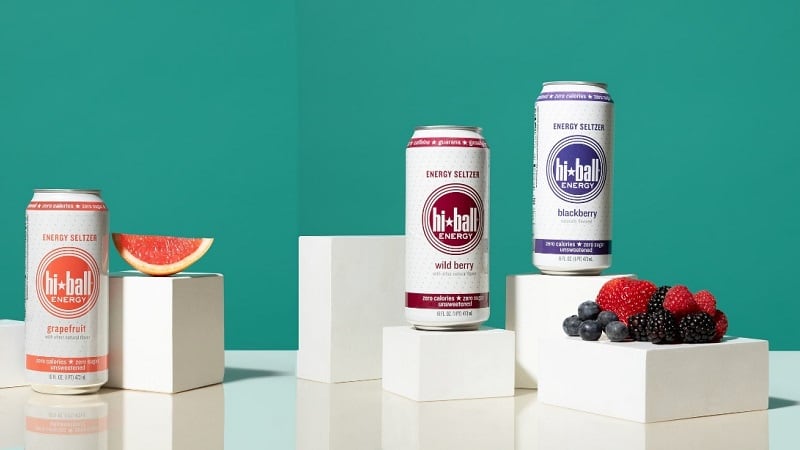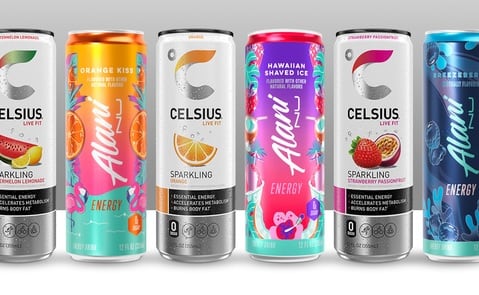Energy drink brand Hi*Ball Energy is quickly re-establishing its retail and digital footprint following its relaunch from Tilray Brands, as consumer demands and recent supply chain complications provide opportunities and challenges to the category.
Initially launched in 2005, Hi*Ball relaunched on Amazon last year and is currently rolling out to US Whole Foods locations in blackberry, grapefruit, peach, watermelon mint, wild berry and vanilla. Hi*Ball contains 160 milligrams of caffeine, 50 milligrams of guarana, and 50 mg of ginseng per 16-ounce can.
Tilray Brands acquired Hi*Ball’s intellectual property and branding in 2023 from Anheuser-Busch, including seven other brands, and worked to recreate the flavors within Tilray’s manufacturing capacity, Jared Simon, president of Tilray Wellness. Hi*Ball experienced a 68% sales growth on Amazon from Sept. 1 to March 1, compared to a year ago.
“We went with the same attributes in terms of the amount of caffeine, the guarana and ginseng in the product, each of those actually being organic as well, and the B vitamin mix. So, we really just rebuilt the product as it stood prior to the discontinuation that was in place. That was really helpful because it allowed us to turn Amazon right back on,” Simon elaborated.
Reestablishing Hi*Ball among the natural channel
Hi*Ball is focusing on reestablishing itself in natural and organic channels, amid consumers increased interest in clean label energy drinks, Simon said.
“What we found was the Hi*Ball consumer really was a natural and organic leaning consumer. Someone who really valued clean labels. Consumers who value simplicity and valued health, which is part of the proposition around how Hi*Ball participates in the energy drink market,” he added.
Nearly 75% of consumers purchase foods and beverages based on their ingredient list, according to Innova Market Insights. Last year, 30% of global food and beverage launches included clean-label claims, with zero additive or preservative claims accounting for 14% of the new products, according to Innova.
Additionally, clean energy drink brands are catching the eyes of major CPG brands as acquisition targets. Celsius acquired rival Alani Nu for $1.8 billion earlier this year, and Keurig Dr Pepper snapped up Ghost last year.
‘The consumer is looking for good value’
Tilray - like many other food and beverage manufacturers - is carefully tracking the impacts global trade tensions and tariffs could have on its supply chain and brands, including its hemp seed brand Manitoba Harvest, Simon said.
Manitoba Harvest grows its hemp in Canada, and trade tensions between the two countries “was a huge concern and continues to be,” though the United States-Mexico-Canada Agreement is holding for now, he noted.
Despite these headwinds, Tilray is leveraging its manufacturing capacity and purchasing power, including the amount of aluminum cans it purchases, to manage cost and deliver value to consumers, Simon explained.
“We do recognize that the consumer is looking for good value. So, we have been pretty consistent in our pricing model. We wanted to go back to the pricing model that was in place three or four years ago, and when this brand was having its utmost success. So, we are still $2.99 for a nice big 16-ounce can,” Simon elaborated.



